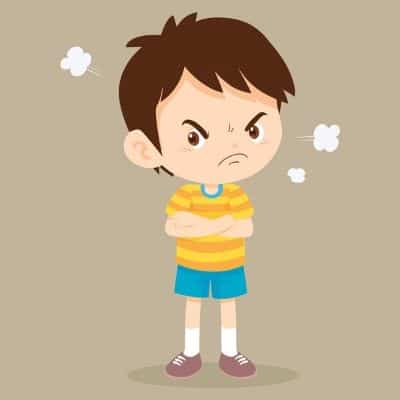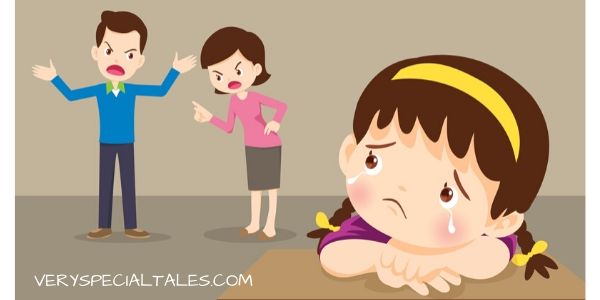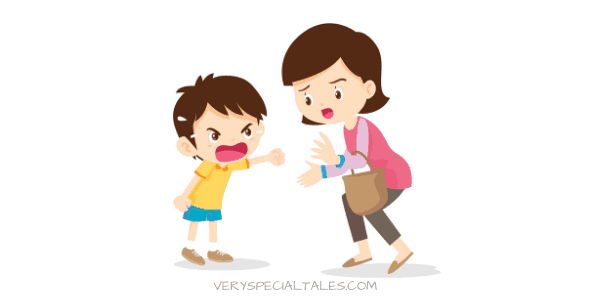
Behavior Problems in Children: Every Single Reason Why your Child May Be Misbehaving
Post at a glance: reasons for behavior problems in children and adolescents, and how to improve children’s behavior
Are you trying to understand the reasons for your child’s behavior problems and looking for solutions for those behavioral issues?
There are many reasons why a child may misbehave but we can basically group them in three main categories:
- Family and parental influence
- Child’s own characteristics
- Consequences of behavior
We’ll cover all these categories and we will share a few tips to help you improve your child’s behavior at home.
(Disclosure: We are a participant in the Amazon Services LLC Associates Program, an affiliate advertising program designed to provide a means for us to earn fees by linking to Amazon.com and affiliated sites. As an Amazon Associate, I earn from qualifying purchases. You can also read our Disclosure & Disclaimer policy here)
Family Role in Children’s Behavior

The family is the reference group responsible for transmitting social values and norms through parental behavior and attitudes.
Some of the family-related factors that may increase the likelihood of behavioral issues are:
- Family dynamics, like cohesion, communication and relationship quality
- Family stress events (e.g. divorce, health or financial problems that may affect parents’ own well-being)
- Parenting styles.
- Parents’ psychological disorders
Sometimes there is also a subjective angle, as some families will deem as misbehavior what others will see as normal.
We’ll dig a bit deeper into parenting styles because most behavior intervention programs for kids are built on insights and learning that research on parenting styles has identified.
Parenting Styles
Research has also shown that our parenting styles have an effect on our children’s development.
Baumrind (1967) researched parent-child interaction and categorized parenting styles based on two dimensions:
- Demandingness: demands, supervision, disciplinary efforts and willingness to confront the child who disobeys
- Responsiveness: attuned parents that support their children’s needs and demands while fostering self-regulation and self-assertion.
Based on these two dimensions Baumrind defined three parenting styles, democratic (or authoritative), authoritarian and permissive.
MacCoby and Marting (1983) added a fourth style, so Baumrind’s permissive style was divided into two different styles: permissive and neglectful.
Parenting styles categorized based on these two dimensions are then defined as follows:
- Democratic: high responsiveness / high demand
- Authoritarian: low responsiveness / high demand
- Permissive: high responsiveness / low demand
- Neglectful: low responsiveness / low demand
Consequences of Parenting Styles in Children Development and Behavior.
Authoritative Parenting Style (also known as Democratic Parenting Style)
An authoritative parenting style that balances control with clear limits but allows exploration, and is responsive, warm and nurturing, is considered the best parenting approach.
Children of parents with democratic style are more likely to develop high self-esteem, high social competence and optimal academic performance.
Authoritarian Parenting Style
Authoritarian parents have high standards and expectations. They are not responsive and nurturing, and they often employ punishment to control behavior.
Children of parents with authoritarian parenting styles may present behavioral problems, low self-esteem, poorer social skills and worse academic performance.
Permissive Parenting Style
Permissive parents are warm and responsive to their children’s emotional development. But they are indulgent and don’t expect mature or responsible behavior from their children.
Permissive parents don’t set rules and boundaries. As a consequence, children have difficulties with self-control and following rules.
Neglectful Parenting Style
Neglectful parents are uninvolved and indifferent to their children’s needs. They are neither receptive nor demanding.
Children of neglectful parents children may be more impulsive and have more mental health issues.
Parenting Styles Bibliography:
- Child-care practices anteceding three patterns of preschool behavior (Baumrind, D. 1967)
- Socialization in the context of the family: Parent-child interaction (Maccoby, E.E. and Martin, J.A. 1983)- in Handbook of child psychology: Vol 4. Socialization, personality and social development.
Deal ALERT! ⬆️ FREE with your Audible Trial when this post was published. Try Audible for FREE HERE. ⬇️
Role of Child Characteristics in Behavioral Issues
Age, personality, physical and emotional development may influence our behavior.
Psychological characteristics that may play a role in your child’s behavioral issues include:
Personality Variables that affect behavior
- Temperament
- Low frustration tolerance
- Impulsivity: difficulty in exercising self-control and difficulty in predicting the consequences
Cognitive variables
- Difficulties in solving problems
- Lack of communication skills
- Level of intellectual development
Social skills
- Lack of social skills
- Poor empathy
Self-esteem
- Low self-esteem
School performance
- Academic difficulties
- Learning delays
Behavioral disorders
- Attention Deficit Hyperactivity Disorder (ADHD)
- Oppositional defiant disorder (ODD)
- Conduct disorder
- Autism Spectrum Disorder (ASD)
Deal ALERT! ⬆️ FREE with your Audible Trial when this post was published. Try Audible for FREE HERE.
Role of Behavior Consequences in Children’s Misbehavior

Behaviors don’t occur randomly.
Consequences that follow our kids’ behavior play an important role in its future occurrence.
Behaviors that are followed by a favorable result (reinforcement) are more likely to happen in the future.
You may be thinking now: “Wait! I’m not reinforcing bad behavior!”
It is important here, to understand two concepts: reinforcement and reinforcers.
Reinforcers
A reinforcer is any event (a treat, a tickle, attention) that, when made contingent on a behavior, increases or maintains the frequency of that behavior.
A reinforcer is not identified by its physical characteristics, but by its ability to increase or maintain a behavior.
So, while your outraged reaction to your child misbehavior may seem like a way to show your disappointment, it may feel like a nice dose of much-craved undivided attention to your kid.
Reinforcement
Reinforcement occurs when a consequence that follows a behavior increases the future frequency of that type of behavior in a similar situation.
There are two types of reinforcement (both result in an increased frequency of a type of behavior):
- Positive reinforcement
- Negative reinforcement
Positive reinforcement occurs when a behavior is followed immediately by the presentation of a stimulus (reinforcer) and, as a result, similar responses occur more frequently in the future.
A behavior example for positive reinforcement:
Your child throws a tantrum at the supermarket. In order to stop that behavior, you give him a lolly. The probability that your child will throw a tantrum at the supermarket has been reinforced. It is more likely to happen in the future because he may get a treat from Mom.
Negative reinforcement occurs when a behavior produces the removal, termination, or postponement of a stimulus that is considered aversive, which leads to an increase in the future occurrence of that behavior.
A behavior example for negative reinforcement: A child who hates maths starts misbehaving during a maths exercise. As a consequence, she is removed from the activity. In the future, she is more likely to misbehave when she wants to escape maths exercises.
ABA Bibliography: Applied Behavior Analysis (Cooper, John O.)
8 Tips to Improve your Child’s Behavior
Most of the behavior tips that you will read below are evidence-based strategies emanating from parenting styles research and applied behavior analysis.
- Be a role model.
Kids learn more from what they see than what we tell them. Show them your respect and empathy - Set firm limits and boundaries that are fair and clearly defined.
- Explain why those rules are important to help them internalize them
- Correct inappropriate behaviors/rules transgressions
- Be consistent applying consequences to rules transgressions.
If breaking a rule is sometimes punished and sometimes ignored, it sends a confusing signal. - Praise good behavior.
Don’t take good behavior for granted. Remember to praise your children when they follow the rules. Praising appropriate behavior will make it more likely to happen in the future - Don’t reward inappropriate behavior.
Understand why your child is misbehaving to ensure you are not rewarding unwanted behavior:- If your child is seeking attention through inappropriate behavior, ignore that behavior.
Tip: Kids need your attention, so make sure you are providing plenty of attention in other circumstances to ensure that your child doesn’t need to resort to misbehavior to obtain that parental attention. - If your child is trying to avoid or prevent an activity, make sure you stick to it.
Tip: Evaluate your demand to ensure that it was reasonable and make adjustments if necessary.
- If your child is seeking attention through inappropriate behavior, ignore that behavior.
- Establish daily routines and stick to them. Predictability is a great ally when managing behavior.
- Use reward charts to assist you with behavior modification. ⇒ Learn how to use reward charts effectively
Other Behavior Resources
- How to track behavior with ABC Charts
- How to prepare a behavior contract for kids
- Expressing Anger Emotions with Emotion Charts
- Anger Scales with Assorted Children Characters



2 Comments
Mary
These tips sound like we might need to help my grandson.
Younglabs
Well Narrated!
Child starts learning everything from home. So it dependends on parent how they want their child to behave. If parents behave authoratative child be irritating and if parents are neglecting child will misbehave. So there is need to maintain a balance in parenting style so that child learn to behave properly.